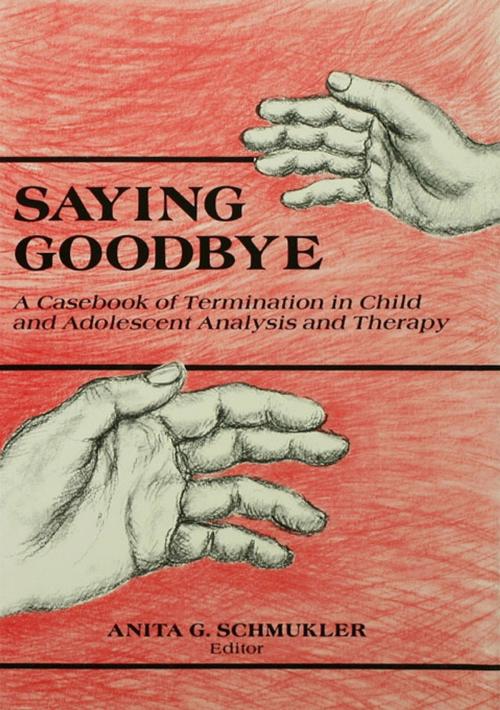Saying Goodbye
A Casebook of Termination in Child and Adolescent Analysis and Therapy
Nonfiction, Health & Well Being, Psychology, Psychotherapy, Interpersonal Relations, Mental Health| Author: | ISBN: | 9781134881659 | |
| Publisher: | Taylor and Francis | Publication: | May 13, 2013 |
| Imprint: | Routledge | Language: | English |
| Author: | |
| ISBN: | 9781134881659 |
| Publisher: | Taylor and Francis |
| Publication: | May 13, 2013 |
| Imprint: | Routledge |
| Language: | English |
Termination of psychoanalysis or psychotherapy is centrally important both to the process of treatment and to the patient's experience of treatment. It is surprising, then, that there has heretofore been no comprehensive study of the subject. This book begins to bridge the gap in this area. It is the first volume devoted entirely to issues surrounding the ending of treatment in analytic and therapeutic work with children and adolescents. Organized into separate clinical and theoretical sections, framed by a preface and sectional introductions, and covering a wide range of psychopathology, this book explores the different ways in which children and adolescents grapple with the experience of separation at the conclusion of treatment. Of special note is the contributors' recognition that the parents of children ending treatment face their own termination experience in relinquishing the support of their child's therapist. The presentations are enriched, as well, by frank discussions of countertransference as it enters into the termination phase of treatment.
Termination of psychoanalysis or psychotherapy is centrally important both to the process of treatment and to the patient's experience of treatment. It is surprising, then, that there has heretofore been no comprehensive study of the subject. This book begins to bridge the gap in this area. It is the first volume devoted entirely to issues surrounding the ending of treatment in analytic and therapeutic work with children and adolescents. Organized into separate clinical and theoretical sections, framed by a preface and sectional introductions, and covering a wide range of psychopathology, this book explores the different ways in which children and adolescents grapple with the experience of separation at the conclusion of treatment. Of special note is the contributors' recognition that the parents of children ending treatment face their own termination experience in relinquishing the support of their child's therapist. The presentations are enriched, as well, by frank discussions of countertransference as it enters into the termination phase of treatment.















